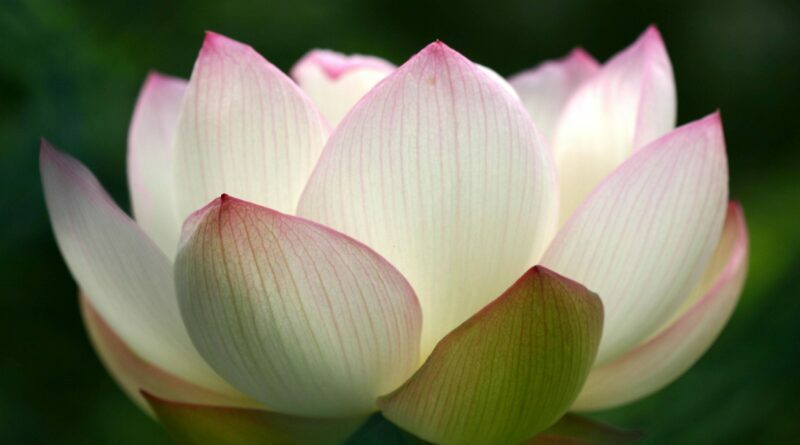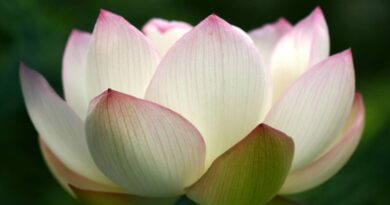EVERY GRAIN OF SAND
Every Grain of Sand
Excerpts from a talk given April 10, 1982
…When we investigate, we have to investigate over and over, time and time again, many, many times until we understand and are fully sure. The mind will t hen let go of its own accord. There’s no way we can try to force it to let go as long as we haven’t investigated enough. It’s like eating: If we haven’t reached the point where we’re full, we’re not full. There’s no way we can try to make ourselves full with just one or two spoonfuls. We have to keep on eating, and then when we’re full we stop of our own accord. We’ve had enough.
The same holds true with investigating. When we reach the stage where we fully know, we let go of our own accord: all our attachments to the body, feelings, labels, thought-fabrications, consciousness, step by step until we finally penetrate with our discernment into the mind itself—the genuine revolving wheel, the revolving mind—until it is smashed to pieces with nothing left. That’s the point—that’s the point where we end our problems in fighting with defilement. That’s where they end—and our desire to go to nibbāna ends right there as well.
The desire to go to nibbāna is part of the path. It’s not a craving. The desire to gain release from suffering and stress is part of the path. It’s not a craving. Desire has two sorts: desire in the area of the world and desire in the area of the Dhamma. Desire in the area of the world is craving. Desire in the area of the Dhamma is part of the path. The desire to gain release from suffering, to go to nibbāna, strengthens the Dhamma within us. Effort is the path. Persistence is the path. Endurance is the path. Perseverance in every way for the sake of release is the path. Once we have fully come into our own, the desire will disappear—and at that point, who would ask after nibbāna?
Once the revolving wheel, the revolving mind has been smashed once and for all, there is no one among any of those who have smashed that revolving mind from their hearts who wants to go to nibbāna or who asks where nibbāna lies. The word ‘nibbāna’ is simply a name, that’s all. Once we have known and seen, once we have attained the genuine article within ourselves, what is there to question?
This is what it means to develop the mind. We’ve developed it from the basic stages to the ultimate stage of development. So. Now, no matter where we live, we are sufficient unto ourselves. The mind has built a full sufficiency for itself, so it can be at its ease anywhere at all. If the body is ill—aching, feverish, hungry, or thirsty—we are aware of it simply as an affair of the body that lies under the laws of inconstancy, stress, and lack of self. It’s bound to keep shifting and changing in line with its nature at all times—but we’re not deluded by it. The khandhas are khandhas. The pure mind is a pure mind by its nature, with no need to force it to know or to be deluded. Once it’s fully true from every angle, everything is true. We don’t praise or criticize anything at all, because each thing is its own separate reality—so why is there any reason to clash? If one side is true and the other isn’t, that’s when things clash and fight all the time—because one side is genuine and the other side false. But when each has its own separate reality, there’s no problem.
Contemplate the mind so as to reach this stage, the stage where each thing has its own separate reality. Yathā-bhūta-ñāṇa-dassana: the knowledge and vision of things as they are. The mind knows and sees things as they are, within and without, through and through, and then stays put with purity. If you were to say that it stays put, it stays put with purity. Whatever it thinks, it simply thinks. All the khandhas are khandhas pure and simple, without a single defilement to order their thinking, labeling, and interpreting any more. There are simply the khandhas pure and simple—the khandhas without defilements, or in other words, the khandhas of an arahant, of one who is free from defilement like the Lord Buddha and all his Noble Disciples. The body is simply a body. Feelings, labels, thought-fabrications, and consciousness are each simply passing conditions that we use until their time is up. When they no longer have the strength to keep going, we let them go in line with their reality. But as for the utterly true nature of our purity, there is no problem at all.…
…Those who have reached full release from conventional realities of every sort, you know, don’t assume themselves to be more special or worse than anyone else. For this reason, they don’t demean even the tiniest of creatures. They regard them all as friends in suffering, birth, ageing, illness, and death, because the Dhamma is something tender and gentle. Any mind in which it is found is completely gentle and can sympathize with every grain of sand, with living beings of every sort. There’s nothing rigid or unyielding about it. Only the defilements are rigid and unyielding. Proud. Conceited. Haughty and vain. Once there’s Dhamma, there are none of these things. There’s only the unvarying gentleness and tenderness of mercy and benevolence for the world at all times.



